10 Feb2020
By Katrina Norfleet
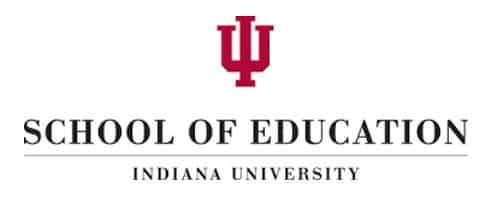 AACTE is delighted to announce Indiana University School of Education as the recipient of the 2020 AACTE Best Practice Award in Support of Global and International Perspectives for its K-16 Global Education Initiatives across Indiana program. Vesna Dimitrieska, coordinator, Global Education Initiatives at Indiana University School of Education and Hamilton Lugar School of Global and International Studies, will be recognized formally with the award at the AACTE 72nd Annual Meeting, February 28 – March 1, in Atlanta, GA.
AACTE is delighted to announce Indiana University School of Education as the recipient of the 2020 AACTE Best Practice Award in Support of Global and International Perspectives for its K-16 Global Education Initiatives across Indiana program. Vesna Dimitrieska, coordinator, Global Education Initiatives at Indiana University School of Education and Hamilton Lugar School of Global and International Studies, will be recognized formally with the award at the AACTE 72nd Annual Meeting, February 28 – March 1, in Atlanta, GA.
The uniqueness of Indiana University’s program lies in its structure as a joint program between its School of Education and its Hamilton Lugar School (HLS) of Global and International Studies, working collaboratively to create globally competent teachers. Hosted at the School of Education, the program ensures graduates enter the workforce with deep global knowledge and “strong fluency in the regional cultures, languages, and perspectives shaping our world.” By combining the resources that are available from the two schools, the program is providing equitable access to urban, suburban, and rural parts of Indiana and initiating, maintaining, and expanding partnerships with educators in schools from 18 different counties across the state.
10 Feb2020
By Jerrica Thurman
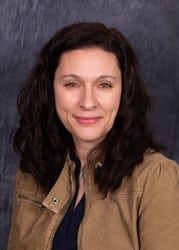 AACTE has chosen an article by Amy Rector-Aranda, Ph.D. of Texas A&M University, the recipient of the 2020 AACTE Outstanding Journal of Teacher Education Article Award. Her article, “Critically Compassionate Intellectualism in Teacher Education: The Contributions of Relational-Cultural Theory,” was published in the September/October 2019 issue of the journal and will be recognized formally with the award at the AACTE 72nd Annual Meeting, February 28 – March 1, in Atlanta, GA.
AACTE has chosen an article by Amy Rector-Aranda, Ph.D. of Texas A&M University, the recipient of the 2020 AACTE Outstanding Journal of Teacher Education Article Award. Her article, “Critically Compassionate Intellectualism in Teacher Education: The Contributions of Relational-Cultural Theory,” was published in the September/October 2019 issue of the journal and will be recognized formally with the award at the AACTE 72nd Annual Meeting, February 28 – March 1, in Atlanta, GA.
In the article, Rector‐Aranda explores how the critically compassionate intellectualism framework might translate as a framework for teacher education. Educational theorists Cammarota and Romero describe critically compassionate intellectualism (CCI) as a trilogy of critical pedagogy, authentic caring, and social‐justice oriented curriculum used to lift up previously disempowered Latinx youth. Because the compassion element in CCI is understudied in teacher education, yet crucial to the success of the framework as a whole, Rector‐Aranda applies the tents of Relational‐Cultural Theory (RCT) to enhance understandings of this component. Based in feminist theories of psychosocial and moral development, RCT expands the original framework to account for varied experiences of privilege and vulnerability when applying CCI to teacher education while retaining core emphases on relationships, empathy, and associate aspects of authentic caring. This study makes a conceptual contribution by offering an integrated framework for teacher education.
10 Feb2020
By Jerrica Thurman
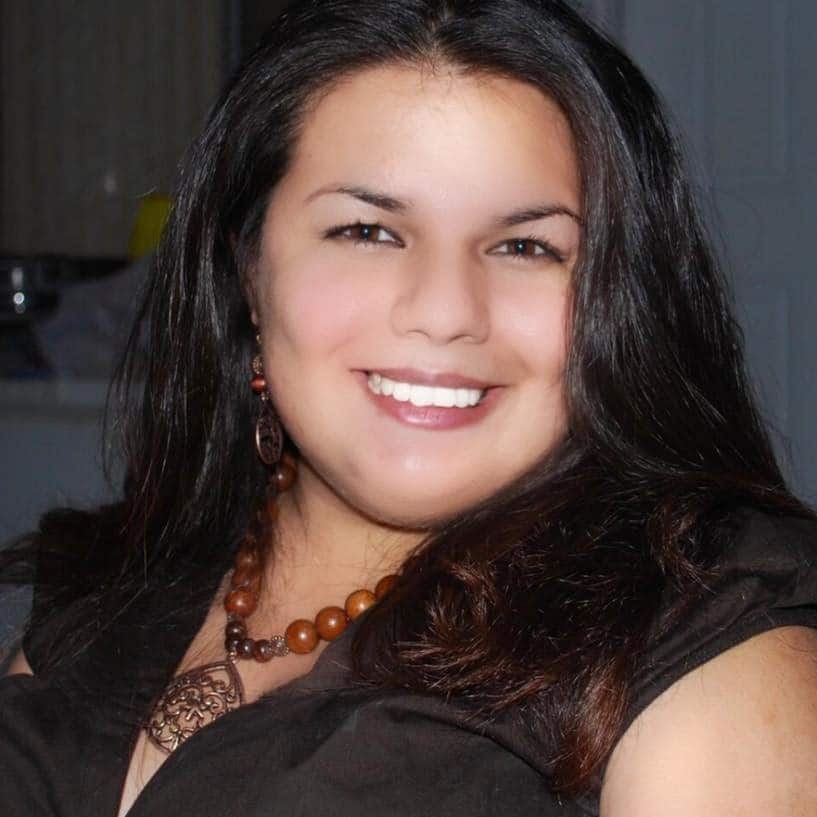 AACTE is delighted to announce Christina Restrepo Nazar, Ph.D. as the recipient of the 2020 AACTE Outstanding Dissertation Award for Youth as Teacher Educators: Supporting Preservice Teachers in the Developing Youth Centered, Equity-Oriented Science Teaching Practices. The author completed her dissertation for the Ph.D. at Michigan State University College of Education. She currently serves as assistant professor of K-12 science education in the Charter College of Education at California State University Los Angeles. She will be recognized formally with the award at the AACTE 72nd Annual Meeting, February 28 – March 1, in Atlanta, GA.
AACTE is delighted to announce Christina Restrepo Nazar, Ph.D. as the recipient of the 2020 AACTE Outstanding Dissertation Award for Youth as Teacher Educators: Supporting Preservice Teachers in the Developing Youth Centered, Equity-Oriented Science Teaching Practices. The author completed her dissertation for the Ph.D. at Michigan State University College of Education. She currently serves as assistant professor of K-12 science education in the Charter College of Education at California State University Los Angeles. She will be recognized formally with the award at the AACTE 72nd Annual Meeting, February 28 – March 1, in Atlanta, GA.
In her dissertation, Restrepo Nazar conducted three separate, but interrelated studies that examine the ways preservice teachers (PSTs) generatively developed youth-centered, equity-oriented pedagogical imaginaries in their methods courses and how they enacted these practice(s) in their field experiences. The purpose of this dissertation is to understand how and in what ways a science methods course can support PSTs in the critical uptake of youth (and community) knowledge(s) and practice(s) and how classroom communities in the field can shift/shape these enactments. In this work, Restrepo Nazar foregrounds youth counternarratives of the culture of power in science as a critical part of learning to teach science for PSTs—a study that has never been done before.
10 Feb2020
By Katrina Norfleet
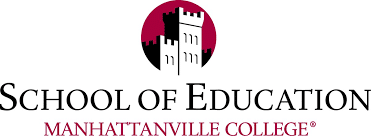 AACTE is delighted to announce Manhattanville College’s School of Education (SOE) in Purchase, N.Y. as the recipient of the 2020 AACTE Best Practice Award in Support of Multicultural Education and Diversity for its Changing Suburbs Institute® (CSI) program. Shelley Wepner, dean and professor, Manhattanville College of Education, will be recognized formally with the award at the AACTE 72nd Annual Meeting, February 28 – March 1, in Atlanta, GA.
AACTE is delighted to announce Manhattanville College’s School of Education (SOE) in Purchase, N.Y. as the recipient of the 2020 AACTE Best Practice Award in Support of Multicultural Education and Diversity for its Changing Suburbs Institute® (CSI) program. Shelley Wepner, dean and professor, Manhattanville College of Education, will be recognized formally with the award at the AACTE 72nd Annual Meeting, February 28 – March 1, in Atlanta, GA.
CSI is a grassroots, school-university-community collaborative that was established in recognition of the increasing diversity in suburban school districts and to ensure that practicing and prospective teachers are prepared to teach an increasingly diverse student population. Now in its fourteenth year, CSI focuses on four major areas: teacher leadership/development, collaboration, dissemination of information, and parent education. To address teacher leadership/development, CSI has established Professional Development Schools (PDS) in 16 schools across eight districts in Westchester County. Each PDS has a Leadership Team comprised of a faculty liaison, teachers, and school administrators.
04 Feb2020
AACTE DEI Video: Building the Special Education Pipeline
By Katrina Norfleet
Ed Prep Matters features the “Revolutionizing Education” column to spotlight the many ways AACTE, member institutions, and partners are pioneering leading-edge research, models, strategies and programs that focus on the three core values outlined in the current AACTE strategic plan: Diversity, Equity, and Inclusion; Quality and impact; and Inquiry and Innovation.
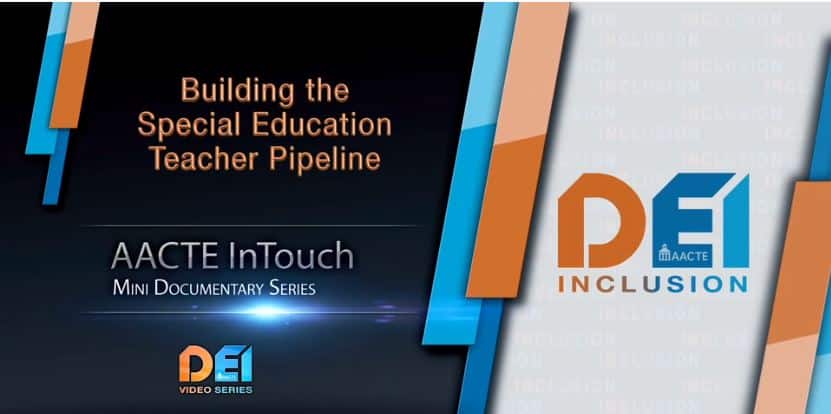
In the next segment of the AACTE Diversity, Equity and Inclusion video series, AACTE members address the critical shortage of special education teachers and how to ensure teachers can effectively serve students with disabilities. The video aligns with AACTE’s strategic priority to advocate for high-quality educator preparation and the inclusion of all students in equitable access and opportunity in PK-20 classrooms. In this DEI video, Building the Special Education Pipeline, leaders in educator preparation consider approaches to increasing the pool of highly qualified special education teachers.
27 Jan2020
By Jane E. West
This blog post is written by AACTE consultant Jane West and is intended to provide updated information. The views expressed in this post do not necessarily reflect the views of AACTE.
As you know, all eyes are focused on the Senate impeachment trial this week. And with the House being in recess, there is no Congressional business underway directly related to education. This may be the case next week as well, since the trial will continue in the Senate. We will keep our eyes peeled. But meanwhile there is a lot going on over at the Department of Education.
Secretary DeVos Announces new Civil Rights Compliance Center
The Department of Education is launching a new unit in the Office for Civil Rights, which is intended to assist schools and universities in “proactively” complying with federal civil rights laws before complaints are filed. Dubbed the Outreach, Prevention, Education and Non-discrimination (OPEN) Center, the initiative will provide targeted support to schools, educators, families, and students in relation to federal non-discrimination laws.
16 Jan2020
By Katrina Norfleet
 In an article that originally appeared in Special Ed Connection, author Kara Arundel spotlights AACTE’s collaboration with the CEEDAR Center in launching the Reducing the Shortage of Special Education Teachers Networked Improvement Community (NIC). As part of the NIC initiative, 10 preparation programs in higher education have been selected to participate in this NIC and implement a range of strategies that will positively impact the special education teacher shortage by the Fall of 2022.
In an article that originally appeared in Special Ed Connection, author Kara Arundel spotlights AACTE’s collaboration with the CEEDAR Center in launching the Reducing the Shortage of Special Education Teachers Networked Improvement Community (NIC). As part of the NIC initiative, 10 preparation programs in higher education have been selected to participate in this NIC and implement a range of strategies that will positively impact the special education teacher shortage by the Fall of 2022.
Cleveland State University (CSU) is one of the universities featured in the article, along with its Associate Dean for Faculty and External Affairs Tachelle Banks. AACTE’s Caitlin Wilson commented on how CSU and the nine other institutions will help find solutions to the nationwide teacher shortage. “By better understanding what works in particular context and comparing how it is similar or different at another university helps us to learn and share with the filed how that particular strategy or promising practice might be adapted depending on local conditions,” said Wilson, the director of program improvement and practice.
Read the full article, “Network of Universities Collaborate to Solve Special Educator Shortages.“
16 Jan2020
AACTE’s DEI Video on The Importance of Culturally Relevant Teaching
By Jerrica Thurman

Ed Prep Matters features the “Revolutionizing Education” column to spotlight the many ways AACTE, member institutions, and partners are pioneering leading-edge research, models, strategies and programs that focus on the three core values outlined in the current AACTE strategic plan: Diversity, Equity, and Inclusion; Quality and impact; and Inquiry and Innovation.
The next segment of the AACTE Diversity, Equity and Inclusion video series features AACTE’s strategic priority to advocate for high-quality educator preparation. Equitable access to education for students from all cultures requires teachers to use knowledge, frame of references, and performance styles of ethnically diverse students to make learning more relevant and effective to them. In AACTE’s DEI video, “The Importance of Culturally Relevant Teaching,” leading educators discuss a teaching pedagogy that affirms students’ differences and diversity.
14 Jan2020
By Jacqueline Rodriguez

AACTE and partner, Educator Preparation Laboratory (EdPrepLab), an initiative of the Learning Policy Institute (LPI) and Bank Street College of Education, will host the second of a series of four webinars, Preparing educators for diverse, equitable, and inclusive classrooms, on January 30.
This collaborative webinar focuses on strategies to increase the preparation of both teachers and leaders. AACTE and EdPrepLab are excited to provide you with an opportunity to learn from and with our dynamic webinar leaders. Four dynamic experts who are advancing diversity, equity, and inclusion in their practice, research, and daily interactions with teachers, leaders, and community stakeholders will present during the webinar:
20 Dec2019
By Jane E. West

This blog post is written by AACTE consultant Jane West and is intended to provide updated information. The views expressed in this post do not necessarily reflect the views of AACTE
Congress Delivers a Big Christmas Present – and On Time!
Republicans and Democrats in the House and the Senate came together to have bipartisan votes in both bodies to pass two packages of funding bills, which will keep all of the federal government running. President Trump has indicated that he will sign the bills today, thus preventing another government shutdown.
Some key points about the education portion of the bill:
- It adds $1.3 billion in spending for education over FY 2019.
- The Department of Education’s budget now totals $72.8 Billion.
- Virtually no program received a cut in funding and many received substantial increases.
- The largest increases went to Title I ($450 million) and IDEA Part B ($400 million).
- Related programs in HHS received large increases as well, for example Head Start has a $500 million increase.
- A new Social Emotional Learning initiative received $123 million.
- Many minority serving institutions in higher education received considerable increases including an $11 million increase for HBCU graduate institutions.
- For the first time in years funding for research on gun violence prevention is provided at $25 million (for CDC and NIH).
18 Dec2019
By Marvin Lynn

Freedom of speech is an ideal to which those who founded this country believed in. I recall President Barack Obama’s many talks about the “American Ideals” of freedom, justice, and liberty, which I believe, includes free speech. Inherent in President Obama’s message was the notion that these ideals were not fully realized by historically marginalized communities in the United States. The current climate of our society further challenges our ability to see “freedom of speech” as something that is unifying rather than polarizing. This has become an increasingly important topic in higher education. The Chronicle of Higher Education, for example, continuously highlights issues regarding the intersection of free speech and civil discourse that are impacting education in unprecedented ways.
13 Dec2019
By Laura Saylor
 Two professors of education at Mount St. Joseph University, in partnership with the Ohio Department of Education and University of Cincinnati School Psychology program, have been awarded a $1.2 million federal grant to work with three local school districts on improving the literacy of students with or at risk for dyslexia.
Two professors of education at Mount St. Joseph University, in partnership with the Ohio Department of Education and University of Cincinnati School Psychology program, have been awarded a $1.2 million federal grant to work with three local school districts on improving the literacy of students with or at risk for dyslexia.
The U.S. Department of Education Model Demonstration Projects for Early Identification of Students with Dyslexia Grant was awarded to a team led by the Ohio Department of Education’s Office of Approaches to Teaching and Professional Learning in collaboration with Amy Murdoch and Wendy Strickler, professors of reading science at the Mount.
13 Dec2019
AACTE’s DEI Video: Helping Students of Color Pursue Careers in Education
By Jerrica Thurman
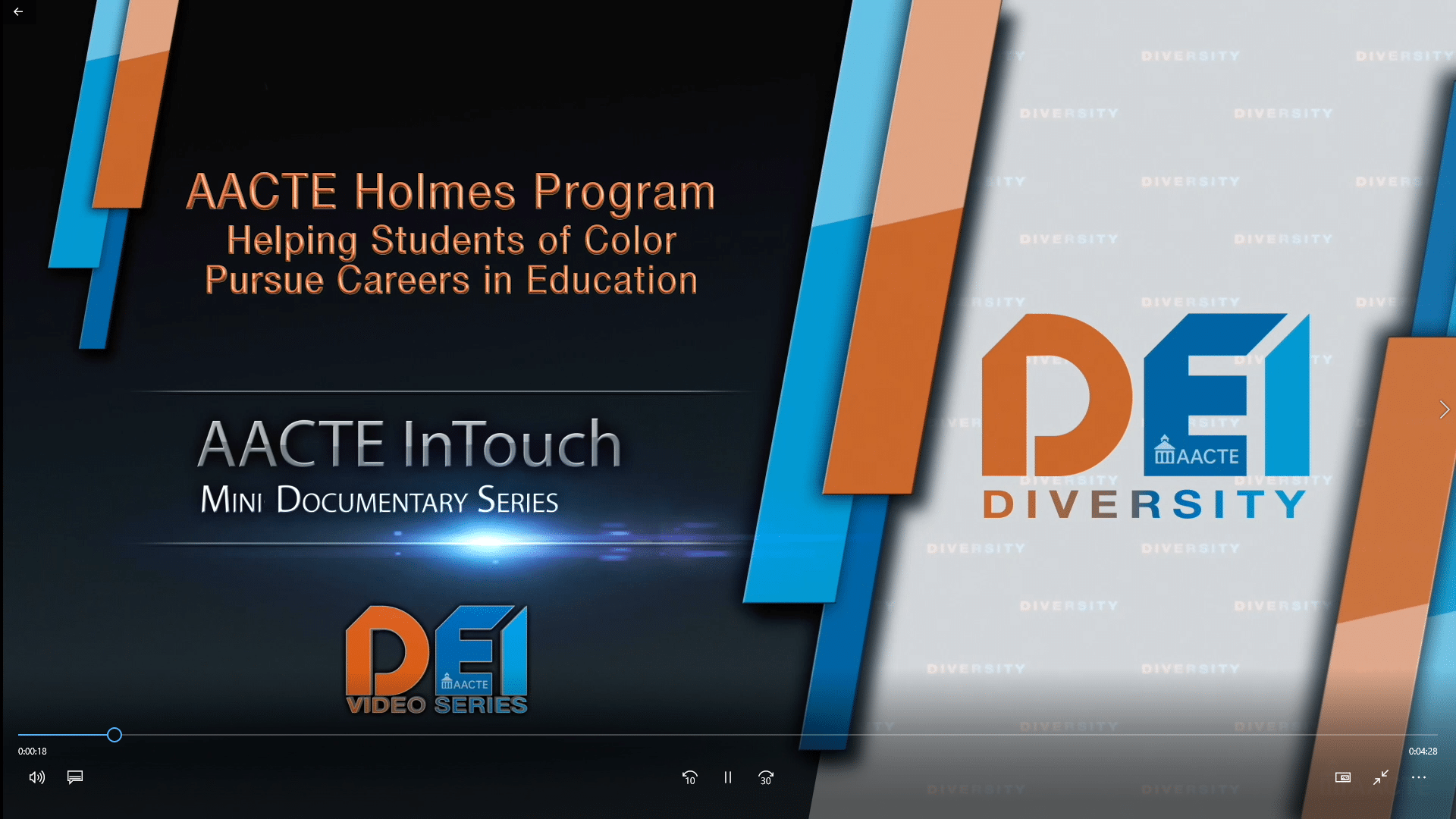
Ed Prep Matters features the “Revolutionizing Education” column to spotlight the many ways AACTE, member institutions, and partners are pioneering leading-edge research, models, strategies and programs that focus on the three core values outlined in the current AACTE strategic plan: Diversity, Equity, and Inclusion; Quality and Impact; and Inquiry and Innovation.
AACTE is excited to feature its Holmes Program as part of the new Diversity, Equity and Inclusion in Educator Preparation video series. For nearly 30 years, the AACTE Holmes Program has supported students who self-identify as racially and ethnically diverse and are obtaining graduate degrees in education at AACTE member institutions.
09 Dec2019
By Patricia Alvarez McHatton
Racist Curricula in the 21st Century Do Exist
Any curriculum, even the most enlightened, has traces of racism. This is simply because we all have biases that come through in multiple ways. Our responsibility as educators is to be critically self-reflective and continuously monitor ourselves, our work, and our interactions with both the students we teach and those around us.
Invariably, believing we are culturally and linguistically responsive and sustaining is an indication that we still have work to do. This is because we are always in a state of becoming. New experiences and knowledge expand our ways of thinking and intersect with our lived experiences making the familiar strange. This is true for individuals and curriculum. That is why continuous critical self-reflection is essential as it affords us the opportunity to negotiate uncomfortable and challenging spaces, experiences, and interactions. It is through this disruption that we learn.
06 Dec2019
Augusta University on a Mission to Recruit More African American Male Teachers
By Stacey Eidson
Ed Prep Matters features the “Revolutionizing Education” column to spotlight the many ways AACTE, member institutions, and partners are pioneering leading-edge research, models, strategies and programs that focus on the three core values outlined in the current AACTE strategic plan: Diversity, Equity, and Inclusion; Quality and Impact; and Inquiry and Innovation.
This article originally appeared in JagWire and is reprinted with permission.

Growing up in Elberton, Georgia, Marcus Allen had a lot of incredible teachers who inspired him to be the man he is today.
They were thoughtful, patient and caring, but Allen, who is now the principal of Grovetown Middle School in Columbia County, admits there was one major component missing throughout his childhood education.
“Back then, I didn’t see people who looked like me teaching,” Allen said. “I didn’t have any African American male teachers at my school. And I think it’s important for students to be able to see someone who they can relate to in the classroom. Somebody who they can say, ‘He really might be able to advocate for me.’”
 AACTE is delighted to announce Indiana University School of Education as the recipient of the 2020 AACTE Best Practice Award in Support of Global and International Perspectives for its K-16 Global Education Initiatives across Indiana program. Vesna Dimitrieska, coordinator, Global Education Initiatives at Indiana University School of Education and Hamilton Lugar School of Global and International Studies, will be recognized formally with the award at the AACTE 72nd Annual Meeting, February 28 – March 1, in Atlanta, GA.
AACTE is delighted to announce Indiana University School of Education as the recipient of the 2020 AACTE Best Practice Award in Support of Global and International Perspectives for its K-16 Global Education Initiatives across Indiana program. Vesna Dimitrieska, coordinator, Global Education Initiatives at Indiana University School of Education and Hamilton Lugar School of Global and International Studies, will be recognized formally with the award at the AACTE 72nd Annual Meeting, February 28 – March 1, in Atlanta, GA.






 AACTE has chosen an article by Amy Rector-Aranda, Ph.D. of Texas A&M University, the recipient of the 2020 AACTE Outstanding Journal of Teacher Education Article Award. Her article, “
AACTE has chosen an article by Amy Rector-Aranda, Ph.D. of Texas A&M University, the recipient of the 2020 AACTE Outstanding Journal of Teacher Education Article Award. Her article, “ AACTE is delighted to announce Christina Restrepo Nazar, Ph.D. as the recipient of the 2020 AACTE Outstanding Dissertation Award for Youth as Teacher Educators: Supporting Preservice Teachers in the Developing Youth Centered, Equity-Oriented Science Teaching Practices. The author completed her dissertation for the Ph.D. at Michigan State University College of Education. She currently serves as assistant professor of K-12 science education in the Charter College of Education at California State University Los Angeles. She will be recognized formally with the award at the
AACTE is delighted to announce Christina Restrepo Nazar, Ph.D. as the recipient of the 2020 AACTE Outstanding Dissertation Award for Youth as Teacher Educators: Supporting Preservice Teachers in the Developing Youth Centered, Equity-Oriented Science Teaching Practices. The author completed her dissertation for the Ph.D. at Michigan State University College of Education. She currently serves as assistant professor of K-12 science education in the Charter College of Education at California State University Los Angeles. She will be recognized formally with the award at the  AACTE is delighted to announce
AACTE is delighted to announce 
 In an article that originally appeared in Special Ed Connection, author Kara Arundel spotlights AACTE’s collaboration with the CEEDAR Center in launching the Reducing the Shortage of Special Education Teachers Networked Improvement Community (NIC). As part of the NIC initiative, 10 preparation programs in higher education have been selected to participate in this NIC and implement a range of strategies that will positively impact the special education teacher shortage by the Fall of 2022.
In an article that originally appeared in Special Ed Connection, author Kara Arundel spotlights AACTE’s collaboration with the CEEDAR Center in launching the Reducing the Shortage of Special Education Teachers Networked Improvement Community (NIC). As part of the NIC initiative, 10 preparation programs in higher education have been selected to participate in this NIC and implement a range of strategies that will positively impact the special education teacher shortage by the Fall of 2022.



 Two professors of education at Mount St. Joseph University, in partnership with the Ohio Department of Education and University of Cincinnati School Psychology program, have been awarded a $1.2 million federal grant to work with three local school districts on improving the literacy of students with or at risk for dyslexia.
Two professors of education at Mount St. Joseph University, in partnership with the Ohio Department of Education and University of Cincinnati School Psychology program, have been awarded a $1.2 million federal grant to work with three local school districts on improving the literacy of students with or at risk for dyslexia.
